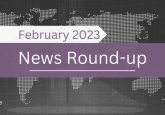CMS releases draft guidance for second cycle of Medicare Drug Price Negotiation Program

CMS releases draft guidance for the second cycle of Medicare Drug Price Negotiation Program, aiming to lower drug costs and improve access for Medicare beneficiaries through price negotiations.
The Centers for Medicare & Medicaid Services (CMS) has released draft guidance for public comment on the second cycle of negotiations under the Medicare Drug Price Negotiation Program (Negotiation Program). Established under the Inflation Reduction Act of 2022 (IRA), this program aims to lower prescription drug costs and improve access to innovative therapies for Medicare beneficiaries. With CMS currently negotiating the prices of the first 10 drugs selected as part of the Negotiation Program, the agency is now taking steps for the second raft of negotiations where up to 15 high expenditure, single source drugs that do not have generic or biosimilar competition will be selected.
This draft guidance describes how CMS intends to implement the Negotiation Program for the initial price applicability year 2027 (January 1, 2027, to December 31, 2027). It clarifies certain policies set forth in, “Medicare Drug Price Negotiation Program: Revised Guidance, Implementation of Sections 1191 – 1198 of the Social Security Act for Initial Price Applicability Year 2026.” Additionally, it sets forth additional policies regarding manufacturer effectuation of the Maximum Fair Price (MFP) in 2026 and 2027 and specifies the requirements applicable to manufacturers of drugs selected for negotiation, as well as the procedures applicable to various entities involved in the Medicare Part D drug supply chain.
Negotiation process for 2027
The draft guidance outlines the process for negotiating prices for up to 15 additional drugs covered under Medicare Part D, selected for potential negotiation for 2027 by February 1, 2025. This second round of negotiations will occur during 2025, with any negotiated maximum fair prices becoming effective on January 1, 2027.
CMS Administrator Chiquita Brooks-LaSure emphasized the agency’s commitment to transparency and collaboration throughout the Negotiation Program. She stated,
“As we look ahead to additional negotiations that will increase access, promote competition and innovation, and lower costs, we continue to engage drug companies and the public as we build on what we are learning in the first cycle of negotiations.”
Guiding principles and procedures
Under the Biden-Harris Administration, lowering prescription drug costs has been a key priority. The Negotiation Program represents a significant step towards achieving this goal by allowing Medicare to directly negotiate prices with participating manufacturers for certain high-expenditure, single-source drugs covered under Part D.
The draft guidance builds on policies outlined in the first cycle and describes the requirements and parameters for the negotiation process. This includes the approach for developing initial offers to participating drug companies, plans for receiving patient-focused information on selected drugs, and the process and format for offer and counteroffer exchange between CMS and drug companies. Additionally, CMS is setting policies for ensuring access to negotiated prices for eligible individuals and dispensing entities in 2026 and 2027, which includes engaging a Medicare Transaction Facilitator (MTF) to facilitate data exchange and potential payment facilitation between pharmaceutical supply chain entities.
Public input and engagement
CMS is soliciting public comments for 60 days, with comments due by July 2, 2024. The agency seeks feedback on various aspects of the Negotiation Program, including the negotiation process, patient-focused events, and data transmission requirements.
In a statement, CMS Deputy Administrator and Director of the Center for Medicare Meena Seshamani, highlighted the importance of public input, stating,
“CMS understands how important these negotiations are for all parties, and we are focused on fostering dynamic dialogue and continuous engagement with stakeholders. Public input is key to achieving the strongest possible implementation of this historic law, which is already lowering healthcare costs.”
The release of draft guidance for the second cycle of the Medicare Drug Price Negotiation Program marks another step towards addressing rising prescription drug costs and improving access to medications for Medicare beneficiaries. By engaging stakeholders and soliciting public input, CMS aims to ensure the success of the program in achieving its objectives of lowering healthcare costs and promoting innovation in the pharmaceutical industry.
Want regular updates on the latest real-world evidence news straight to your inbox? Become a member on The Evidence Base® today>>>






